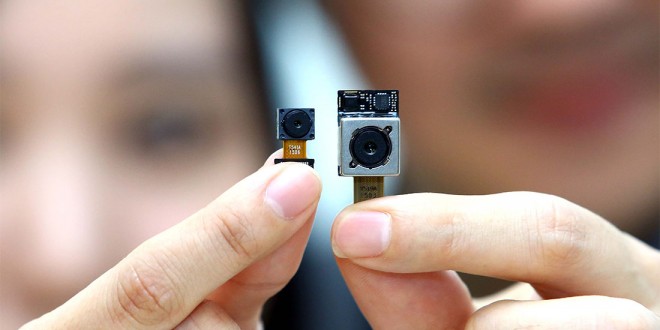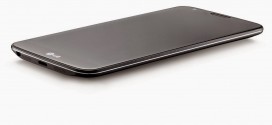The LG G4 release date is set for April 28, when the new flagship from the South Korean smartphone manufacturer will be officially unveiled. LG has done a good job at keeping the leaks about their new smartphone at a minimum, instead opting to leak LG G4 components itself, to get the credit or to bypass illegitimate leakers. This time around, LG’s LG Innotek, the component developer for LG products, has come forth with a tiny LG G4 camera hands-on, although the actual LG G4 is missing from the shots.
According to LG Innotek, the LG G4 camera will be a 16 MP sensor with an f 1.8 aperture, which makes the component the single widest aperture camera in a smartphone until now. According to the company, thanks to this module, the LG G4 camera will be great at taking low-light photos, which is something smartphone manufacturers like Apple, Samsung and HTC have been struggling with over time. Although there are smartphones out there which can take decent low-light photos, such as the Galaxy Note 4, the LG G4 camera aims to be the best there is on the market. Whether that will turn into a fruitful endeavor we will only find out a few weeks after the official LG G4 release date, when people get a chance to actually test out the LG G4 camera in review units.
LG Innotek says that the LG G4 camera will be able to receive 80 % more light than the LG G3 camera, which is already pretty enticing to a smartphone photography fan, as the LG G3 was pretty good with pictures and videos when it was launched. It still is, but the Galaxy Note 4 is currently regarded as a better option, among others. The LG G4 camera will supposedly improve low-light photography, all the while reducing the amount of noise and blur that show up in photos.
LG Innotek also revealed that the LG G4 camera on the front will be an 8 MP shooter that will feature a thin IR filter that will help improve color accuracy and photo clarity. Although that’s quite a lot of detail about the LG G4 camera setup, we’re not seeing any mention of optical image stabilization in the press release, which seems like it would be an important part of creating a good smartphone camera. Many of those anticipating the LG G4 launch are hoping for OIS to be there on the rear camera. Anyway, we’re definitely looking forward to testing the LG G4 camera and the entire flagship, too.
 Load the Game Video Games, Reviews, Game News, Game Reviews & Game Video Trailers
Load the Game Video Games, Reviews, Game News, Game Reviews & Game Video Trailers



